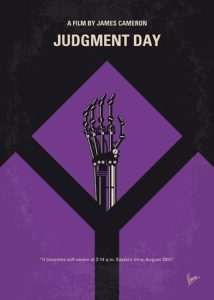
There is a war currently being waged between STEM and humanities
majors. This is not a violent conflict, no blood has yet been shed;the only casualties are those who become polluted into thinking that
either field is inherently better than the other.
The common perception is that STEM majors are intelligent but rigid, unappreciative of art and unable to see the “human” factor. This is contrary to the humanities major, who is wise and thoughtful
but so focused in on their particular niche they lose sight of what can be truly useful to society. Such toxic mentalities are rampant in college circles, as students stick to their clustered cliques, tut-tutting the other side for just not getting it.
Into this open vacuum of stuffy jingoism comes this strange little class: the Digital Humanities. And into this strange little class came a student who has long held the belief that those STEM majors just don’t get it. He had heard of this strange little class with its oxymoronic title and he just had to check it out. So this poor student, who has always held a certain degree of contempt for those STEM majors and their stupid intelligence, finds himself learning that the reason he has access to all of his beloved media, his art, his literature, is because of a few lines of code and some strips of a metal he probably couldn’t even pronounce the name of.
That poor student, being me of course, finds himself in an awkward position when at the end of the course he actually thinks that all of these technical STEM things are all of the stuff he always thought was monopolized by the humanities. Languages are just issues of communication solved through the grouping of symbols and sounds. Every time a writer goes back and edits their existing material, trimming away the lines that don’t work, they are engaging in the same behavior as the scientist or mathematician or computer technician that is solving a complicated set of code, or discovering a black hole. What is in our books? A rigid structure of chapter>page>paragraph>sentence>word>letter. It’s just the same as in coding or mathematics. Librarians, those brave guardians of the humanities, use coding and mathematical processes of data collection, as we learned in “Metadata”. So… I guess problem solving isn’t just in the realm of the STEM majors.
Towards the beginning of this class, we discussed what the study of humanities was, and it’s a question I keep returning to even as we trudge into the muck of html and source code. What we do in class, picking through backchannels on networking websites and adding brackets to couplets of letters, that is part of the humanities. It could also be considered part of the STEM field. This class helped to dispel the notion that there is a binary existence of art on one side and math on the other, only separated by a thin de-militarized zone where business majors eke out some sort of meager existence. Rather, it is a nebulous field where both exist, borrowing elements most think belong to the other and transforming them into what we recognize as its pure form. I guess “Digital Humanities” isn’t such an oxymoron.
Whatever I say, I’ve still got my eye on you, STEM majors.

